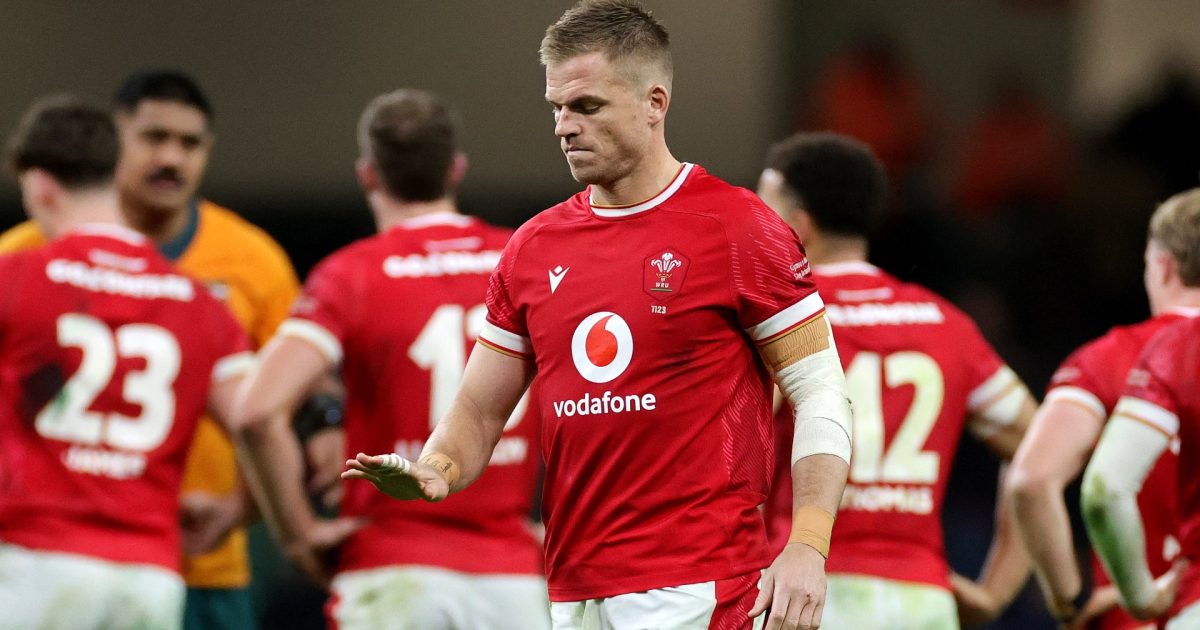Gloucester open up on Wales snub for Gareth Anscombe, Max Llewellyn

Gloucester rugby director George Skivington has admitted his surprise at the omission of Gareth Anscombe and Max Llewellyn from Wales’ Guinness Six Nations squad. Both Gloucester backs failed to make the 34-strong group announced by Wales head coach Warren Gatland on Monday for a campaign that kicks off against France in Paris on January 31.
Fly-half Anscombe and centre Llewellyn have been pivotal performers during Gloucester’s resurgence this season, along with Welsh Six Nations squad members Tomos Williams, Josh Hathaway and Freddie Thomas.
The west country club are just three points adrift of the Gallagher Premiership play-off places, and also on course to secure an EPCR Challenge Cup last-16 spot.
They have won many admirers with their free-flowing, attacking approach, highlighted by players such as Llewellyn, who is joint top Premiership try-scorer this season, Anscombe and scrum-half Williams. But Anscombe and Llewellyn have missed out on Six Nations selection alongside other notable absentees in Cardiff full-back Cameron Winnett and Scarlets flanker Taine Plumtree.
“I was surprised. I had planned for both of them to be away (during the Six Nations),” Skivington said. “They were both very disappointed. They have come in today [Tuesday] positive, and they will control what they control and that is trying to put their best foot forward.
“Things change quickly, as we know. The door might open for them for one reason or another. Ultimately, it is up to coaches the squad they pick, the team they pick, the way they want to play. Both of those lads are in good form for us, and I was definitely surprised to see it, but I understand when you are selecting a squad you do what you think is right.”
Anscombe has overcome serious injury setbacks to compile a 38-cap Test career, while Llewellyn had been expected to build on his Autumn Nations Series experiences of earlier this season. Skivington added: “Gareth has seen the highs and lows of the game so many times that he is well-versed in a bit of disappointment and how quickly that can swing around and you can get what you want.
“It is probably tougher for Max because he has worked extremely hard recently to put himself in the position. He is one of the top try-scorers in the Premiership, he is playing really well, he got all those minutes in the autumn.
“He was probably looking forward to using those lessons in the Six Nations, and obviously he is shocked not to be involved. He is a strong character, he is disappointed, but he is going to do everything he can to get selected.”
Skivington said he had not spoken to Gatland or any of his Wales coaching team around the selection. “I know all these guys from a long time ago, and I have had plenty of conversations with Warren over the years,” he said.
“The relationships are good, but I haven’t asked any questions or asked for anything. I have talked with Max and Gareth, and they have had their feedback individually from the coaches. Warren is a far more experienced coach than me and been around the block a lot longer.
“He is going to know very strongly the way he wants to play rugby and how he wants to do things. International rugby is very different to Premiership rugby, and he is the most well-versed head coach in the Six Nations who knows international rugby.”
Rugby’s best of the best, ranked by experts. Check out our list of the Top 100 Men's Rugby Players and let us know what you think!

















































































